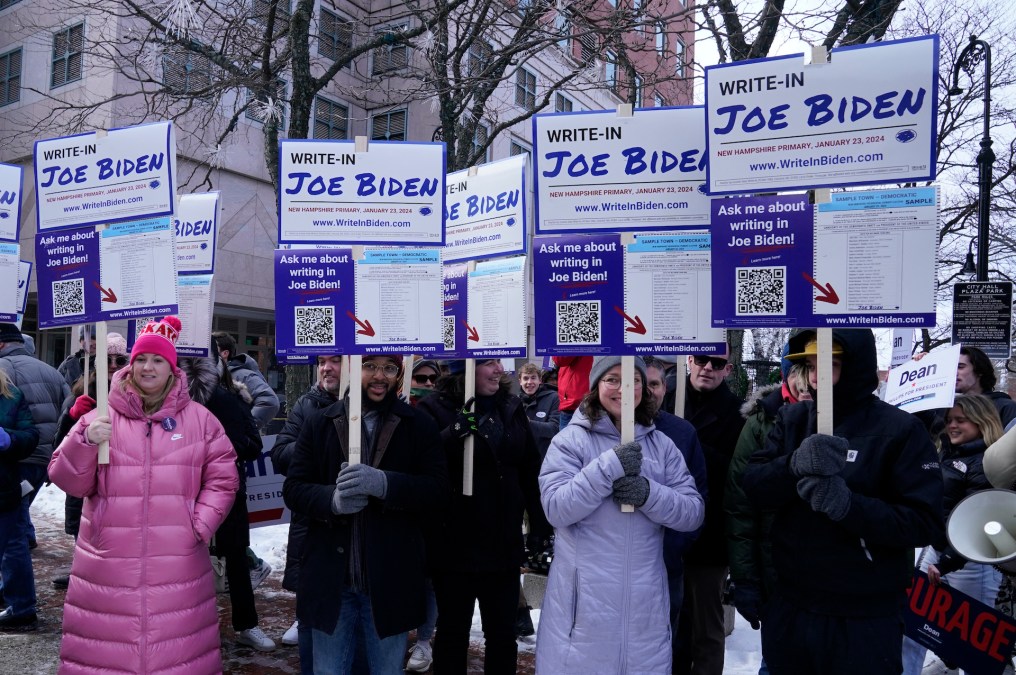New Hampshire authorities charge Democratic operative behind Biden AI robocall

New Hampshire authorities on Thursday indicted the Democratic political operative Steve Kramer for his role in creating and distributing an AI-generated robocall that impersonated President Joe Biden and urged the state’s voters to not cast their ballots in January’s primary election.
Kramer, who has admitted to being behind the creation of the robocall, was indicted on 13 counts of felony voter suppression and 13 misdemeanor counts of impersonating a political candidate.
New Hampshire Attorney General John Formella said he believes the charges “send a strong deterrent signal to anyone who might consider interfering with elections, whether through the use of artificial intelligence or otherwise.”
“New Hampshire remains committed to ensuring that our elections remain free from unlawful interference and our investigation into this matter remains ongoing,” Formella added.
The charges, which were first reported by CNN, were filed in Rockingham County, Belknap County, Grafton County and Merrimack County, where 13 different New Hampshire residents received versions of the call in January.
In conjunction with the New Hampshire indictment, the Federal Communications Commission on Thursday proposed fining Kramer $6 million for spoofing the phone number of a former state Democratic party official as part of the scheme. That official, Kathy Sullivan, headed up a super PAC that was running a write-in campaign for Biden, and residents who received the robocall warning them not to vote were directed to her number for more information.
The agency also proposed a $2 million fine for Lingo Telecom, the telecommunications carrier that distributed the calls and signed them with an “A-level” attestation that was meant to signal to downstream providers in the call path that Lingo had a direct, authenticated relationship with the customer and that they had the right to use the telephone number.
“We will act swiftly and decisively to ensure that bad actors cannot use U.S. telecommunications networks to facilitate the misuse of generative AI technology to interfere with elections, defraud consumers, or compromise sensitive data,” said Loyaan A. Egal, chief of the FCC’s Enforcement Bureau and chair of the Privacy and Data Protection Task Force. “We thank our partners at the New Hampshire Attorney General’s Office for their help with this investigation.”
Kramer did not respond to a request for comment.
In April, Kramer told CyberScoop that he was cooperating with the New Hampshire Department of Justice, the New Hampshire Attorney General’s office and the FCC “to not only satisfy a subpoena but in the future help them to prevent the kind of artificial intelligence that I’ve tried to prevent.”
Kramer is also being sued by the League of Women Voters and New Hampshire residents for his role in the AI robocall scheme.
